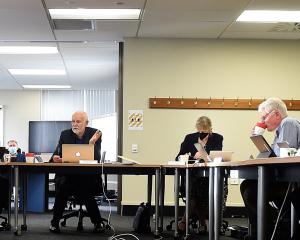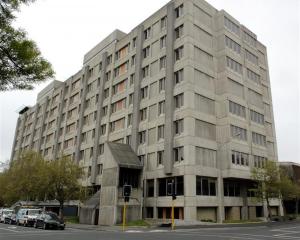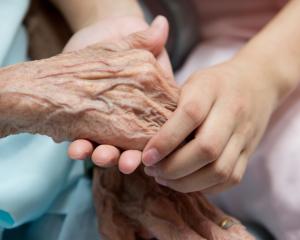
It was Carole Heatly's first day on the job yesterday, and in an interview with the Otago Daily Times, she said recent English media coverage critical of her salary being continued through a secondment was based on a leaked document that had been "completely misunderstood".
The negative attention had been "disappointing", as she had enjoyed a good relationship with the media until then.
Ms Heatly was chief executive of North Cumbria University Hospital NHS Trust but in the middle of last year was seconded to an entity called Advancing Quality Alliance North West.
In 2008, she took over the NHS trust, which had a multimillion-pound financial shortfall that would be addressed by a planned takeover by another trust.
The trust's financial problems were "at least 10 years" in the making, and she had been instrumental in organising the takeover deal that ensured its survival.
Top salaries were a focus in Britain because of concern over the excesses of the financial system.
"There's not many bankers in Cumbria, so the focus is on the public sector," she said.
Executive-level salaries in New Zealand were comparable to those in Britain, she said.
Asked to disclose her new salary, she said it was in the "ball park" of $450,000.
Her predecessor, Brian Rousseau, received $510,000 to $520,000 in 2010-11.
"It's not about money," she said.
Asked how she would tackle Southern District Health Board's forecast $10 million deficit, she said there were always "efficiencies" to be found.
This might include bulk purchasing, or working more closely with other DHBs.
Front-line services were the "last place you look" for finding savings.
There was much work to do in Southern to transform it into a properly functioning single DHB, as at present many services operated on the old DHB boundaries.
She was keen to establish "centres of excellence" to which patients would be sent, rather than duplicating services on different sites.
She emphasised she was new and would "listen, look and learn", rather than having preconceived ideas.
This week would be spent travelling around the DHB, including Southland and Central Otago, to speak to staff on different sites.
Next week, she would be in Wellington meeting officials.
New Zealand had a relatively streamlined health system with much less bureaucracy than other countries, she said.
As a public servant, she expected to be accountable to the community, which included an "open and honest" approach to media inquiries.
However, direct media access would no longer be direct in the first instance, as it had been under Mr Rousseau, with reporters advised to send inquiries through communications manager Steve Addison.
DHB chairman Joe Butterfield, in an interview with the ODT last month, said the board had been aware of the financial shortfall at the NHS trust, but it was not of Ms Heatly's making.











